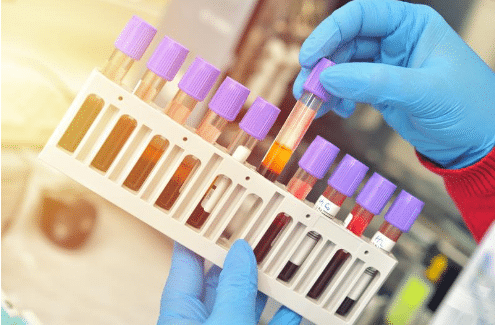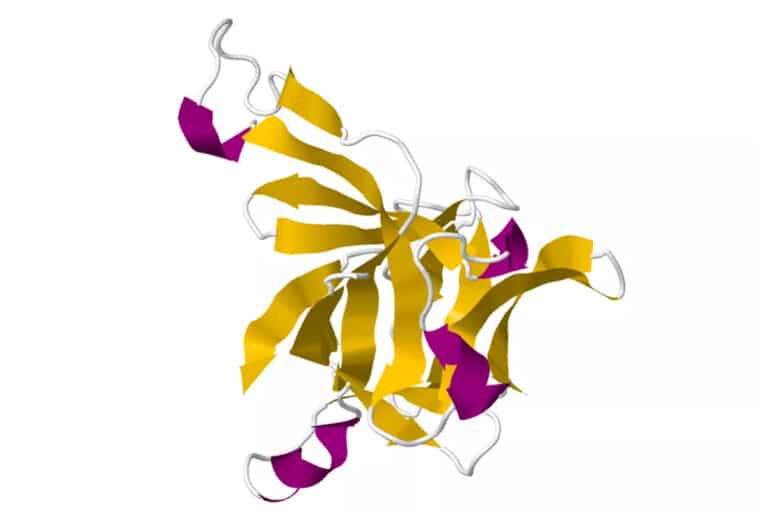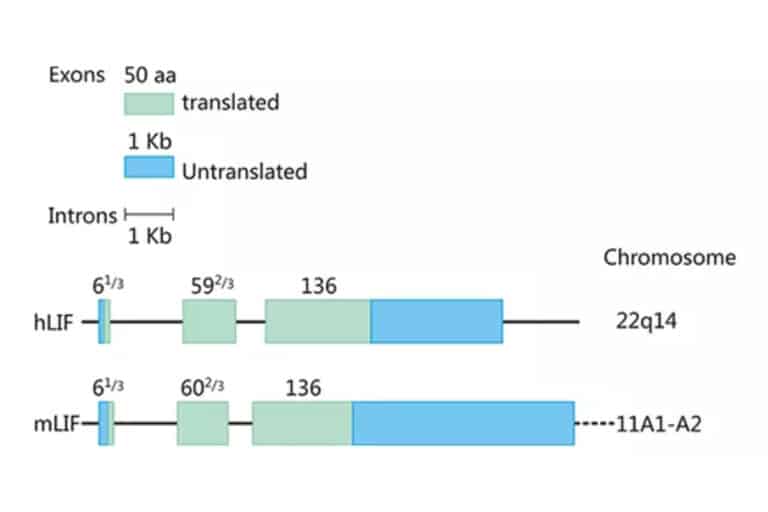What Are Hormones?
What Are Hormones?
Introduction
Hormones are chemical messengers that are secreted directly into the blood, which carries them to organs and tissues of the body to exert their functions. These signals tell your body what to do and when to do it. Hormones are essential for life and your health.
Hormones are powerful. It takes only a tiny amount to cause big changes in cells or even your whole body. That is why too much or too little of a certain hormone can be serious.
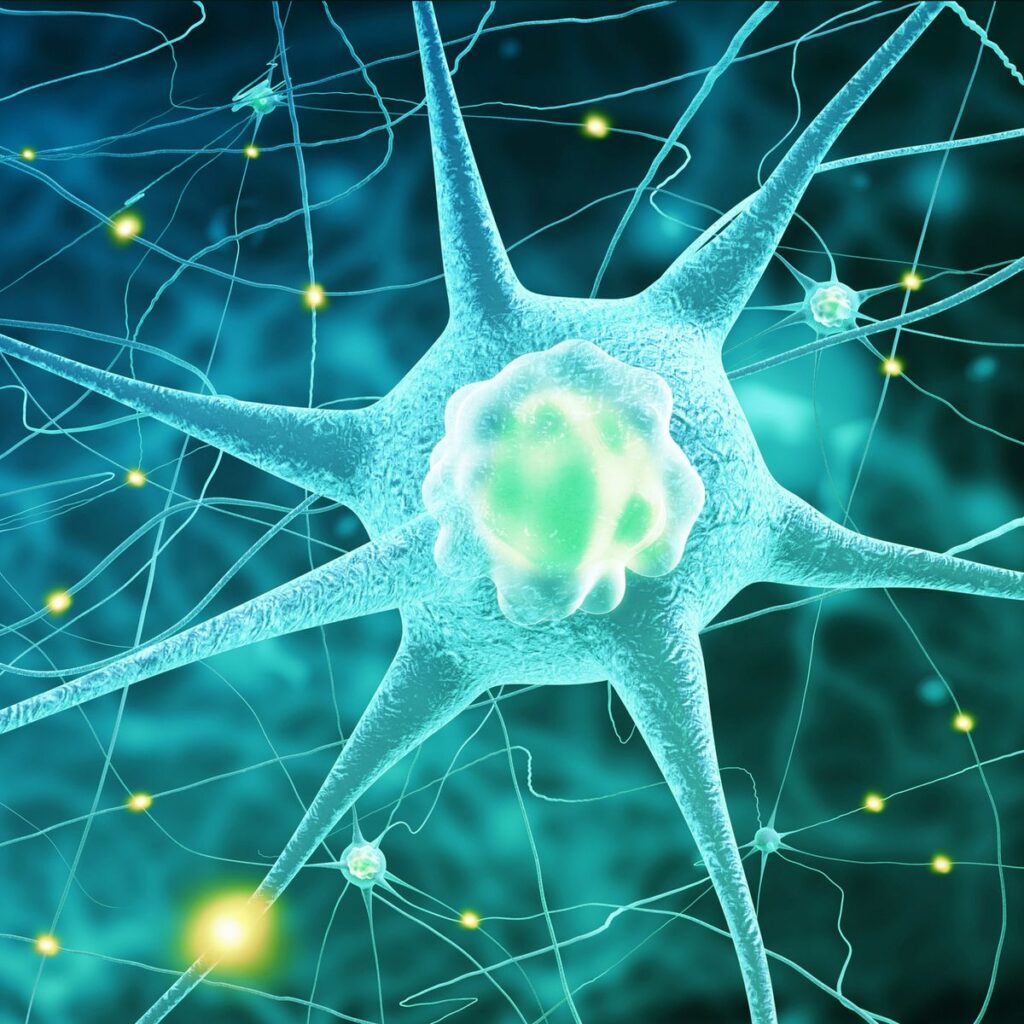
Where Do Hormones Secrete From?
Hormones are secreted from the endocrine glands in the body. The glands are ductless, so hormones are secreted directly into the blood stream rather than by way of ducts. Some of the major endocrine glands in the body include:
- Pituitary gland
- Pineal gland
- Thymus
- Thyroid
- Adrenal glands
- Pancreas
- Testes
- Ovaries
These organs secrete hormone in microscopic amounts, and it takes only very small amounts to bring about major changes in the body. Even a very slight excess of hormone secretion can lead to disease states, as can the slightest deficiency in a hormone.
How Does Endocrine System Work ?
Your endocrine system continuously monitors the amount of hormones in your blood. Hormones deliver their messages by locking into the cells they target, so they can relay the message. So far, scientists have discovered more than 50 hormones in the human body.
The pituitary gland senses when your hormone levels rise, and tells other glands to stop producing and releasing hormones. When hormone levels dip below a certain point, the pituitary gland can instruct other glands to produce and release more. This process, called homeostasis, works similarly to the thermostat in your house. Hormones affect nearly every process in your body, including:
- Metabolism (the way you break down food and get energy from nutrients).
- Growth and development.
- Emotions and mood.
- Sexual function
- Reproduction
- Mood
Endocrine glands, which are special groups of cells, make hormones. The major endocrine glands are the pituitary, pineal, thymus, thyroid, adrenal glands, and pancreas. In addition, men produce hormones in their testes and women produce them in their ovaries.
With hormones, a little bit goes a long way. Because of this, minor changes in levels can cause significant changes to your body and lead to certain conditions that require medical treatment. Such as weight gain, high blood pressure and changes in sleep, mood and behavior. Many things can affect how your body creates and releases hormones. Illness, stress and certain medications can cause a hormone imbalance.
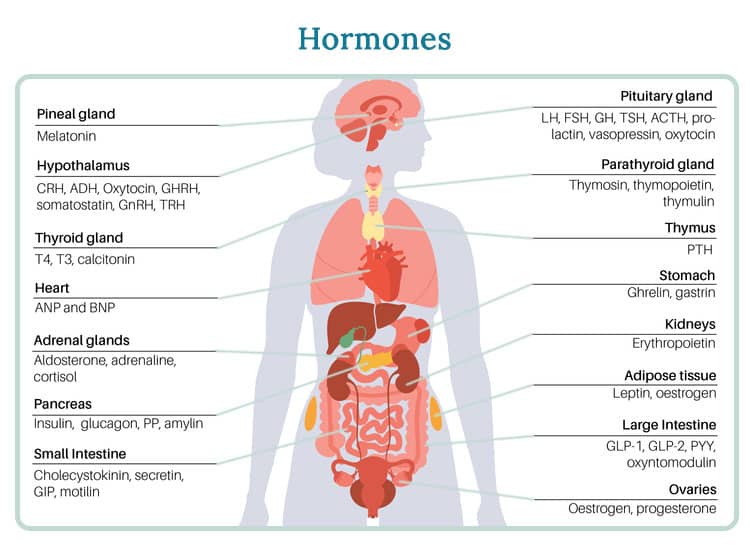
What Are The 5 Main Hormones?
If your body produces too little or too many hormones, it can make you very ill and expose you to many serious health problems. At FeiyueBio, our dedicated team of holistic thinking practitioners work with you to identify and resolve hormone problems. Let’s take a closer look at five important hormones and how they help you function well.
Insulin
Insulin is a peptide hormone produced by beta cells of the pancreatic islets; it is considered to be the main anabolic hormone of the body. The fat-storage hormone, insulin, is released by your pancreas and regulates many of your metabolic processes. It regulates the metabolism of carbohydrates, fats and protein by promoting the absorption of glucose from the blood into liver, fat and skeletal muscle cells. In these tissues the absorbed glucose is converted into either glycogen via glycogenesis or fats (triglycerides) via lipogenesis, or, in the case of the liver, into both. Glucose production and secretion by the liver is strongly inhibited by high concentrations of insulin in the blood. Circulating insulin also affects the synthesis of proteins in a wide variety of tissues. If your body doesn’t generate enough insulin or if it isn’t using it well, blood sugar accumulates and can set you up for diabetes.
Melatonin
Melatonin is a natural product found in plants and animals. It is primarily known in animals as a hormone released by the pineal gland in the brain at night, and has long been associated with control of the sleep–wake cycle. As the light of day becomes the dark of night, your brain amps up your melatonin levels to prepare you for sleep. Interruptions to natural darkness impair melatonin levels and sleep quality. For instance, late-night exposure to the blue light of screens can interrupt natural sleep patterns.
Estrogen
Estrogen or oestrogen is a category of sex hormone responsible for the development and regulation of the female reproductive system and secondary sex characteristics. Also known as the female sex hormone, estrogen is released by a woman’s ovaries. It’s a crucial element of the development of breasts, pubic hair, and the widening of hips. In addition to regulating a female’s periods, estrogen is also involved in bone formation, blood clotting, and the health of your skin and nails. If you are depleted in estrogen, you may have low moods or depression. When estrogen levels fluctuate, as they do during menopause, you may experience hot flashes, low libido, and weight gain.
Testosterone
Testosterone is a sex hormone that’s manufactured in male testicles and female ovaries. It’s most often associated with sex drive, but is also closely associated with muscle and bone mass and the distribution of fat cells. Low levels of testosterone cause erectile dysfunction, low sex drive, decreased semen production, loss of muscle, and low bone density.
Cortisol
Cortisol is the stress hormone. It’s a natural alert system to let you know when you’re under duress. While it’s helpful when you need to be aware of imminent danger, consistently high cortisol levels can lead to anxiety, weight gain, migraines, heart problems, irritability, brain fog, and sleep disturbances.
Reference:
- Huether, Sue E.; McCance, Kathryn L. (2019). Understanding Pathophysiology. Elsevier Health Sciences. p. 767. ISBN 978-0-32-367281-8. Estrogen is a generic term for any of three similar hormones derived from cholesterol: estradiol, estrone, and estriol.
- Hardeland R, Poeggeler B, Srinivasan V, Trakht I, Pandi-Perumal SR, Cardinali DP (2008). “Melatonergic drugs in clinical practice”. Arzneimittelforschung. 58 (1): 1–10. doi:10.1055/s-0031-1296459. PMID 18368944.
- 3. Shuster M (2014-03-14). Biology for a changing world, with physiology (Second ed.). New York, NY. ISBN 9781464151132. OCLC 884499940.



